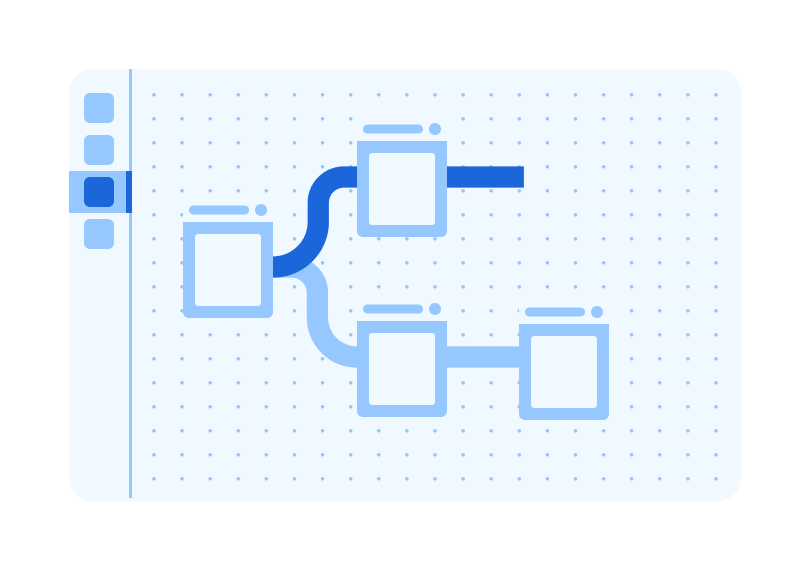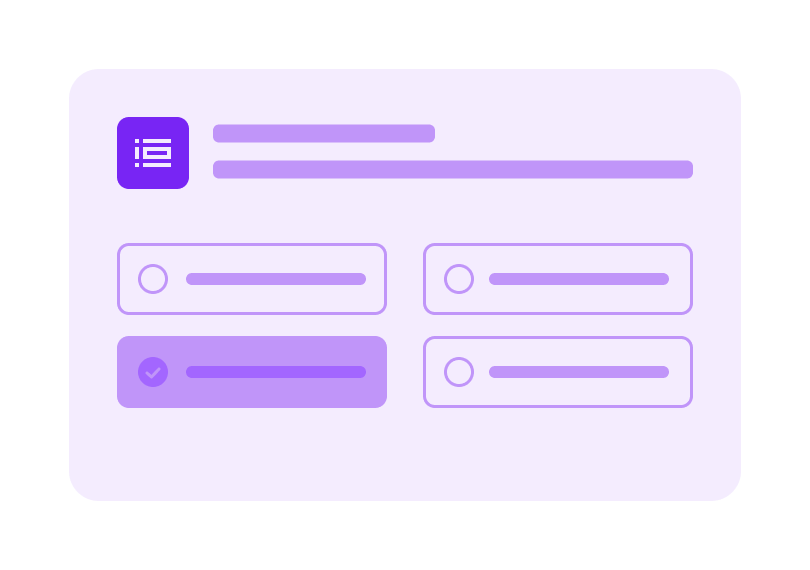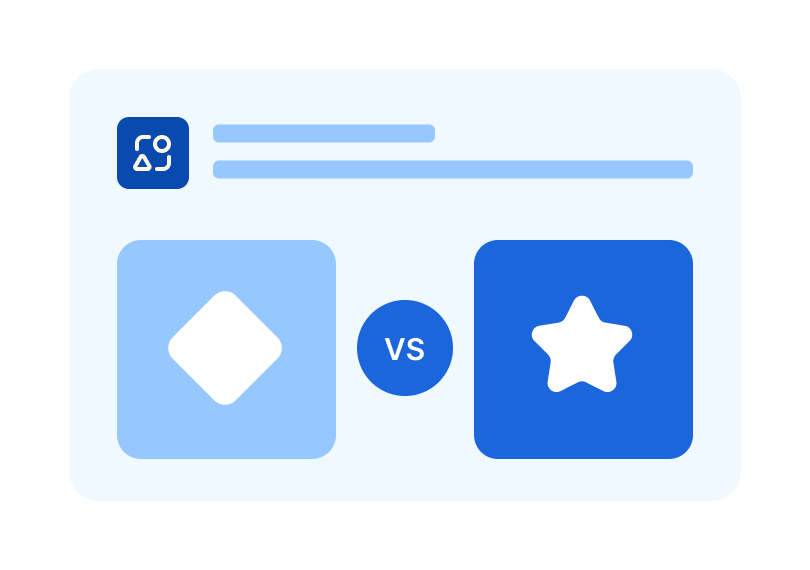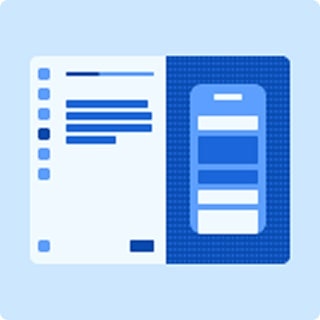Wireframe Testing Templates
If your team is in the early stage of the design process, a wireframe testing template is an quick, easy, and effective way to make sure things are headed in the right direction. Select a pre-built template to test low-fidelity wireframes with users, discover preferences, streamline your website sign-up flow, and capture valuable insights that will help solve potential problems.

PRO
Test your website sign-up flow
Design • Research • Usability Testing • Wireframe Testing
Test your website sign-up flow
Validate your sign-up flow

PRO
Run an early prototype test
Usability Testing • Wireframe Testing • Design
Run an early prototype test
Fail fast and improve faster with a quick prototype test
Req. Prototype

PRO
Test mobile app usability
Design • Usability Testing • Wireframe Testing
Test mobile app usability
Test your mobile product before launch
Req. Prototype

PRO
Run a wireframe preference test
Wireframe Testing • Design
Run a wireframe preference test
Test wireframes early in the game
Req. Prototype

Run a Single Ease Question (SEQ) test
Usability Testing • Wireframe Testing • Research
Run a Single Ease Question (SEQ) test
Assess difficulty with a Single Ease Question (SEQ) test
Req. Prototype

Compare two design prototypes
Usability Testing • Wireframe Testing • Product • Research • Design
Compare two design prototypes
Test and compare multiple design variants
What are some best practices for running effective wireframe testing?
1. Define a plan of action. Like most other testing methods, creating a research plan outlining your goals and expectations is a good way to start. Make a note of expected user behavior, metrics you’ll use to track success, stakeholders that should be involved in the process, and possible contexts for your users completing the wireframe test.
2. Write a test script. This will help set user expectations for the test. Include a short introduction to the test, a set of instructions for your participants to follow during, and a pre- and post-test questionnaires to determine both users’ familiarity with the product (pre-) and any issues they uncovered (post-).
3. Analyze your results. Once you’ve run your test, start identifying patterns in your results and organize the issues by their importance to your goal. Check your original plan of action for expected user behaviors to note points of interest—then use your feedback to guide new tests and your future high-fidelity prototypes.
Frequently asked questions
What is a wireframe?
What is a wireframe?
A wireframe is a simplified representation of a page interface that defines:
- The organization of each element on a page (the layout)
- How each part will work (the functionality)
- The way information will be presented to the user (the information architecture)
- The steps a user takes to complete a task (the user flow)
What are the benefits of usability testing?
What are the benefits of usability testing?
One of the benefits of usability testing is that you can fix usability issues before launching your product and make sure you create the best possible user experience. Ultimately, ensuring users can accomplish their goals smoothly will lead to long-term customer success..
In a nutshell, wireframe testing allows you to:
- Explore different early layout concepts
- Test your ideas rapidly and validate them with users
- Learn valuable information that you can use to guide the design of higher fidelity prototypes.
What are the different types of wireframes?
What are the different types of wireframes?
There are three main types of wireframe: low-fidelity, mid-fidelity, and high-fidelity.
- Low-fidelity wireframes are your rough early designs—they tend to contain very little content and be in greyscale.
- Mid-fidelity wireframes are still a little rough around the edges, but they contain more elements and are closer to what you envision your final solution to look like.
- High-fidelity wireframes are the highest quality version of wireframes. They’ll help you validate your design decisions with users while also testing for usability issues.



